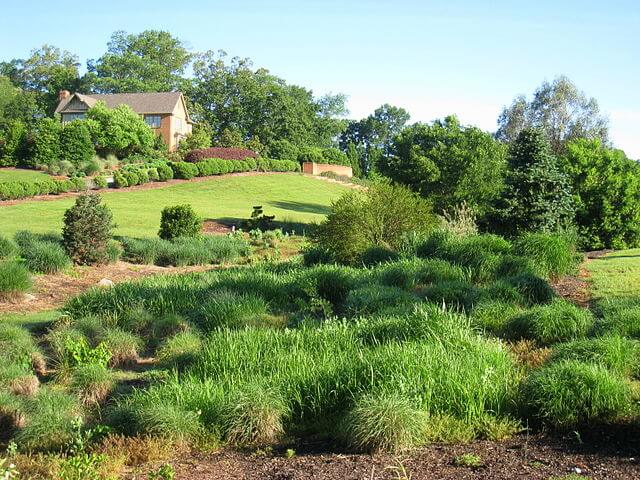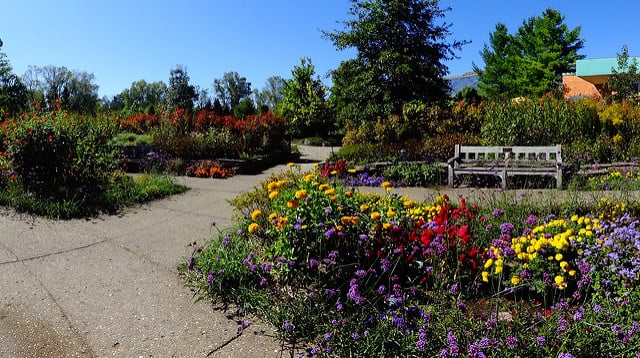If you love the outdoors, flowers, plants, and fresh air, you may just want to consider these five schools. They may just be a perfect fit if you’re considering majoring in horticulture, biology, environmental sciences, or similar subjects, or even if you just love the outdoors. If you’re interested in finding more colleges with beautiful gardens, check out this post that can have you in love with spring on campus.
Clemson University – Clemson, SC

Wikimedia Commons User Daderot
Clemson University’s South Carolina Botanical Garden (SCBG) certainly captures the beauty of the state. Open year round, even on holidays, the grounds are open to everyone, free of charge. On the 295 acre garden, you can find demonstration gardens, nature trails, sculptures, museums, and more. It’s the perfect place to take a break from the textbook to learn, research, or just enjoy the outdoors.
University of Michigan – Ann Arbor, MI

Flickr user VasenkaPhotography
The Matthaei Botanical Gardens and Nichols Arboretum located at the University of Michigan are actually two separate properties on campus, but are under one organization. The Botanical Gardens feature the campus farm, over ten separate gardens, a conservatory, trails, and artwork. Over at the Arboretum, visitors can find the Peony Garden (where there are varieties of plants from the 19th and 20th centuries), natural areas, and more. It’s a great way to mix gardens and the outdoors when you want to head outside.
University of Missouri – Columbia, MO

Flickr user CAFNR
Featuring the Mizzou Botanic Garden, the University of Missouri created the garden to further education and research, with a focus on collections and conservation for plants suited to the area. Still growing in size, the garden is changed often, but you can find nearly twenty gardens on campus. It’s regularly used for education and research, so it’s the perfect area to have a class outdoors.
Wake Forest University – Winston-Salem, NC

Flickr user mbtphoto
Previously an estate in the early twentieth century, the Reynolda Gardens now call Wake Forest University home. The formal garden has actually been restored to appear as though it was from the early 1900’s, but the college also features exotic plants, greenhouses, nature trails through woods, meadows, wetlands, and more. Research is regularly completed in the gardens by students and the school even offers learning experiences for the public that include classes, summer camps, and workshops.
Interested in any of these schools? Check out your acceptance odds with College Raptor’s free match tool!






